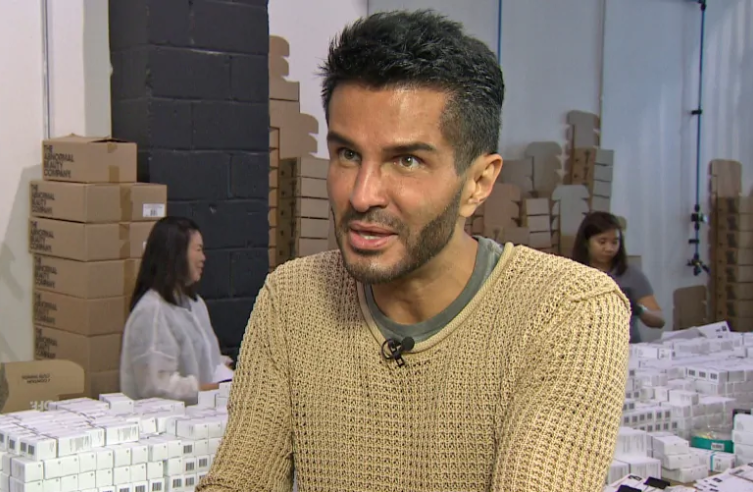
Move follows weird, controversial social media post by founder Brandon Truaxe
Deciem, the upstart Canadian company behind the hugely popular The Ordinary Skin Care line, has closed its stores because of what the chief executive says is criminal activity within the company.
But Brandon Truaxe — who also founded the company — has made outlandish claims in the past, prompting some to question whether this is all an elaborate marketing stunt.
Headquartered in Toronto, Deciem makes more than 300 skin care products under 10 different product lines. It is best known for a line called The Ordinary.
Calling itself “The Abnormal Beauty Company,” Deciem is one of the most disruptive operators in the beauty business, mainly because of its low prices.
Most of Deciem’s products cost less than $12, and some cost less than $5 — price points that are unheard of elsewhere in the beauty industry, where markups can be as high as 80 to 90 per cent.
The Ordinary beauty line also offers simple ingredients and relatively modest benefit claims. The disruptive approach has led to a cult-like following of customers, helped propel Deciem to a reported $300 million in annual sales, and enticed Estée Lauder Companies to invest in Deciem in June 2017, buying a 28 per cent stake.
Despite that surging popularity, however, the company’s founder abruptly announced on Monday that he was closing up shop, for now.
“We will shut down all operations until further notice,” said Deciem founder Brandon Truaxe in a video posted on Instagram.
Truaxe appeared to say the shutdown would last two months.
Calls to all of Deciem’s eastern Canadian locations rang unanswered until a central recorded greeting eventually said no one is available to answer your call.
Truaxe did not return calls or texts from CBC News.
In the video, Truaxe said the closures were due to widespread criminal activity within the company.
“Almost everyone at Deciem has been involved in major criminal activity which includes financial crimes and much other,” he said.

Deciem has more than 20 stores in five countries — and 18 more under construction — but in an interview earlier this year, Truaxe told CBC News 75 per cent of the company’s sales are done online.
An order placed on Deciem’s website this morning appeared to go through, complete with valid credit card billing.
The video is the latest in a series of rambling, often incoherent posts that Truaxe — who took over the corporate social media accounts in February — has made on Instagram.
The posts prompted company followers and fans of The Ordinary to question whether Truaxe was mentally ill or on drugs.
In June, Truaxe told the CBC there was nothing to worry about.
“In some of the posts I’m said I’m CIA. And the post before that I said we’re making a movie. So those people, they should basically, if they don’t drink alcohol they should just have a shot of Don Julio and relax. We’re a beauty company.” he said.

In that same interview, Truaxe hinted at wrongdoings within Deciem, but rather than talk specifics, he launched into metaphor.
“If you go down in the basement and you hear rats, the best news that can happen is if somebody comes and checks and there was no rat.” Truaxe said. “The worst news that can happen is maybe you’ve got rats all over the roof. But I need to get to the bottom of it.”
The odd behaviour has had some people in the past questioning whether Truaxe is in fact “screwed up” — as he proudly proclaims on Deciem’s website — or whether this is all part of an elaborate marketing scheme.
“He’s done this sort of thing before” said Cheryl Wischhover, a senior reporter who writes about the beauty industry for The Goods by Vox. Truaxe has also hinted that if things “didn’t improve” he was going to leave Deciem, the company he helped found in 2013.


